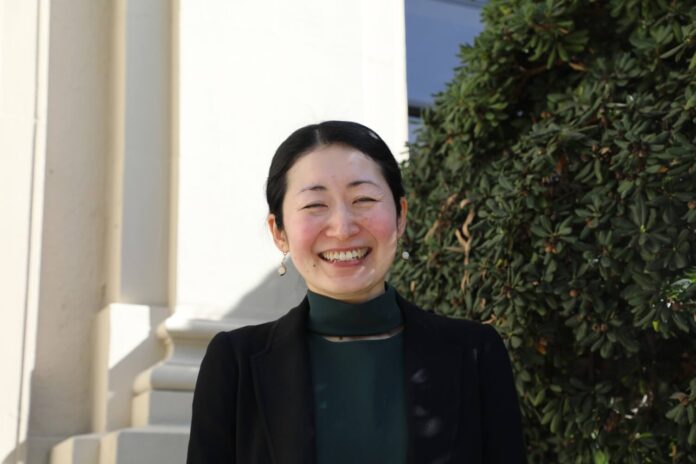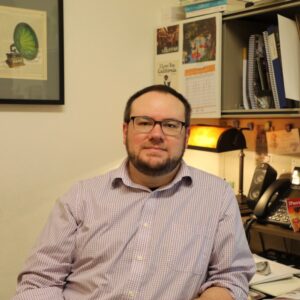
President Harry J. Elam announced Jan. 6 that classes would take place remotely for the first week of the spring semester and the start date would be delayed by one week. Due to the rise in COVID-19 case counts in LA County and the rapid spread of the omicron variant, this decision allowed for a staggered return to campus for students and faculty. While the college has taken many steps to mitigate the spread of COVID-19, some faculty have still expressed concerns over the return to campus and in-person classes, deciding to remain remote beyond the mandatory first week.
Art history professor Yurika Wakamatsu chose to remain virtual for another week after many classes returned in person due to both her and her husband’s health conditions.
“I just wanted to make sure that everyone arriving from different places gets tested,” said Wakamatsu.
Although there are health concerns with in-person learning, Wakamatsu also acknowledges the downsides of remote learning.
“I think it’s easier for students to kind of check out, especially for students who are having difficulties in their personal lives when they’re struggling and don’t feel like participating in class,” Wakamatsu said.
Jan. 18, the day classes were originally scheduled to begin, COVID-19 cases in LA County were peaking at an average of 37,909 new cases per day. While cases have been declining since, numbers were still high Jan. 31, the first day of in-person classes — averaging 19,948 cases per day, half of what they were the week before. Some safety measures the college took were requiring COVID-19 booster shots for all eligible students, staff and faculty, providing N95 and KN95 masks at the Arthur G. Coons (AGC) administrative center and updating rules for residential halls through the COVID-19 Student Compact.
“We will resume an in-person residential experience knowing that this return depends on developing flexible, safety-conscious, preventative measures of living responsibly with the realities of COVID,” Elam said in the college-wide statement Jan. 6.

Other faculty members are also concerned about protecting students and professors with underlying conditions. Diplomacy & World Affairs (DWA) professor Igor Logvinenko recognizes the difficulty the college encounters when making decisions regarding COVID-19. According to Logvinenko, students and faculty members have different interests and it can be difficult to satisfy everyone’s needs.
“I think many faculty are concerned and older people, people with kids understand their concerns, their trade-offs between all those things,” Logvineko said. “Students are really interested in being in person, because they’re young, relatively healthy. And so I understand students want to be in person. I think there’s many faculty who feel differently.”
According to Logvinenko, Wakamatsu and first-year seminar professor Edmond Johnson who is also the Director of Academic Advising and Core Program Coordinator, the college has handled the return to campus and classes appropriately, they are mostly satisfied with Occidental’s COVID Operations Group (COG).
“I really don’t envy their position,” Logvinenko said.
Since the start of the pandemic, the COG has been given the responsibility of shifting college policy with the national and county guidelines. With this in mind, they also must acknowledge the desire to maintain the in-person, residential experience students have lost over the past two years since the pandemic began.
“It’s a really contentious area,” Logvinenko said. “But overall, I think they’ve done a good job.”
Logvinenko said accessible and easy testing, weekly updates and consistent communication reassured him of the college’s competence. Johnson also decided to start in-person classes the second week, like Logvinenko.

According to Johnson, it has been hard to navigate the safest policies and procedures throughout the pandemic, but he feels that professors have figured out safe classroom environments as well as they could.
“I’m very glad that they postponed the start of the semester,” Wakamatsu said. “I’m also very glad that the college is providing higher-grade masks to all members of our communities for students, faculty and staff.”
However, Wakamatsu said she wishes the college better advertised the availability of masks on campus.
With campus reopening, many other campus facilities have become available and populated again. Later hours for the Tiger Cooler and Berkus Bistro, along with the reopening of the Green Bean, are some of the campus options restarting after the pandemic’s height. According to Logvinenko, the vaccine rollout has helped ease concerns about the pandemic.
“I think there’s a recognition broadly in the country that we should be returning to some kind of normalcy,” Logvinenko said.
Johnson said while remote learning had some advantages, he appreciates the return to in-person learning.
“Being back in person, like face-to-face, has been really refreshing,” Johnson said.
![]()






























